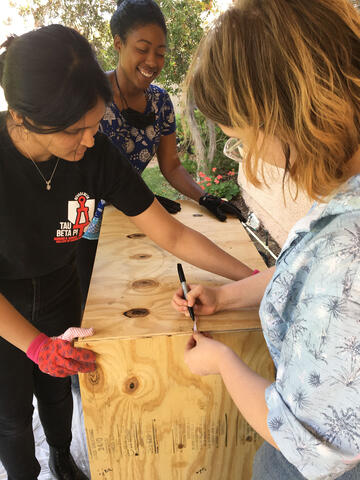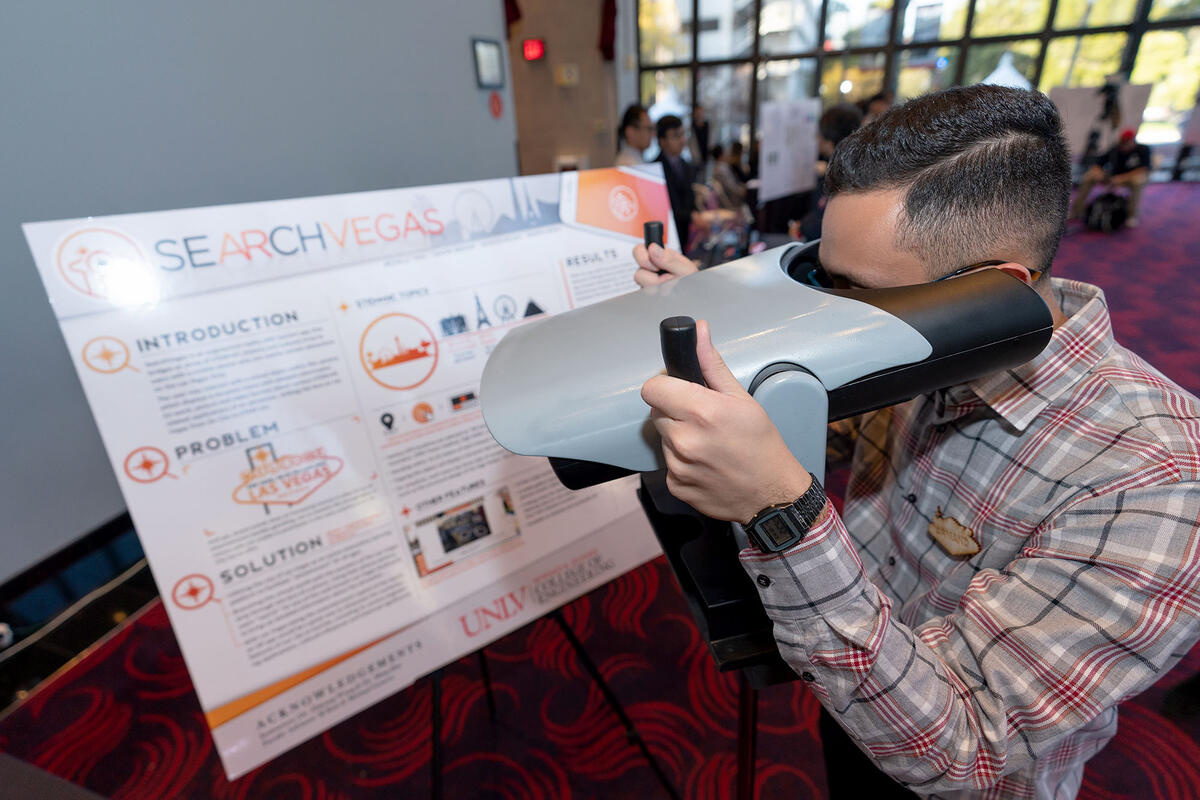It has been two very long years since the last Fred & Harriet Cox Senior Design Competition took place in person. During the pandemic, student teams continued designing and building prototypes, and even presented them to volunteer industry judges — just virtually.
“Our faculty, staff, and community partners turned on a dime during the pandemic to make sure our students were still able to reap the benefits of this comprehensive, hands-on experience,” said Rama Venkat, dean of the Howard R. Hughes College of Engineering. “But nothing beats the opportunity to actually showcase your hard work and prototypes to a larger audience, in person.”
The college’s senior design project encourages students to use everything learned in their program to create a practical, real-world solution to an engineering or computer science challenge.

According to Emma Letourneau, mechanical engineering senior and one of four members of the Hydroponic Kitchen Cart, her senior design courses were more hands-on than many of her other classes.
“The biggest benefit working on these types of projects is learning how to look at a problem and solve it. There were so many times when we tried something, it didn’t work, and we had to rethink it. It is all about how you tackle problems and find solutions.”
The problem Letourneau’s team is trying to solve is insufficient access to healthy food for inner-city residents living in confined spaces. Their Hydroponic Kitchen Cart conveniently fits inside an apartment, provides additional counter space, and is a user-friendly solution for beginning gardeners to grow their own food.
The original idea was conceived by fellow teammate Miranda Miller, an entertainment engineering and design major. “I live in an apartment without a balcony, and have a black thumb when it comes to gardening,” admitted Miller. She wanted a space-saving system that could monitor itself, letting the user know when pH levels were low or high, send alerts for water levels, and provide educational guidance for the novice gardener.
Miller’s roommate, Apoorva Chauhan, joined the effort, along with Rogina Cobb, both mechanical engineering students.
“When I joined, I really wanted to challenge myself,” said Cobb. “This project was heavy on the computer and electrical side, and I thought if I worked with a team I could increase my knowledge in those areas and be prepared better for life outside of the university.”
Cobb is definitely ready for life after graduation, as are all of her fellow team members. She and Miller already have jobs secured, while Letourneau and Chauhan are looking to continue their studies and have applied to UNLV’s Graduate College.



